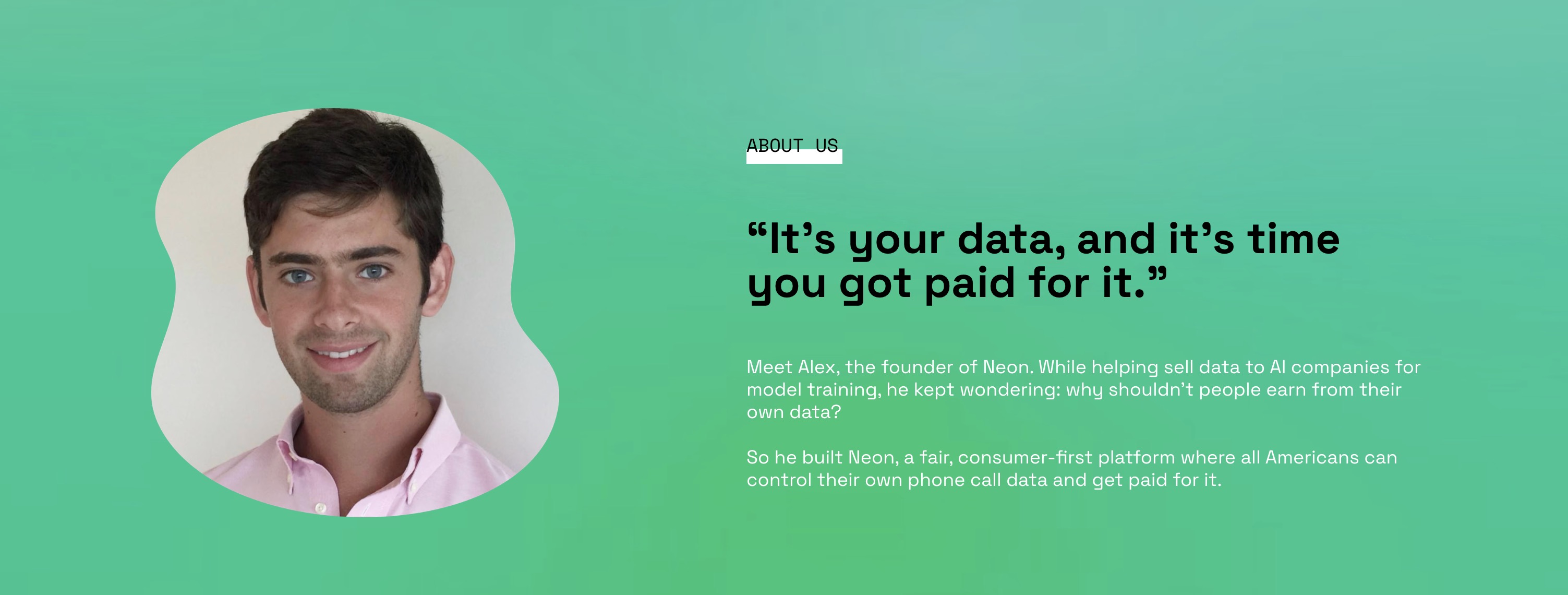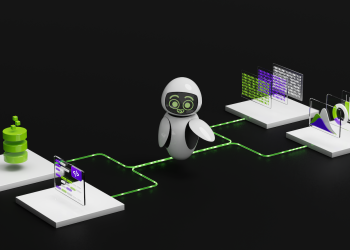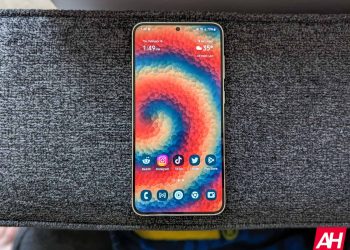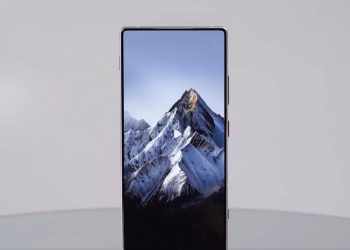laws of many states, you have to have consent from both parties to a conversation in order to record it … It’s an interesting approach,” says Daniels.
Peter Jackson, cybersecurity and privacy attorney at Greenberg Glusker, agreed — and tells TechCrunch that the language around “one-sided transcripts” sounds like it could be a backdoor way of saying that Neon records users’ calls in their entirety but may just remove what the other party said from the final transcript.
In addition, the legal experts pointed to concerns about how anonymized the data may really be.
Neon claims it removes users’ names, emails, and phone numbers before selling data to AI companies. But the company doesn’t say how AI partners or others it sells to could use that data. Voice data could be used to make fake calls that sound like they’re coming from you, or AI companies could use your voice to make their own AI voices.
“Once your voice is over there, it can be used for fraud,” says Jackson. “Now this company has your phone number and essentially enough information — they have recordings of your voice, which could be used to create an impersonation of you and do all sorts of fraud.”
Even if the company itself is trustworthy, Neon doesn’t disclose who its trusted partners are or what those entities are allowed to do with users’ data further down the road. Neon is also subject to potential data breaches, as any company with valuable data may be.

In a brief test by TechCrunch, Neon did not offer any indication that it was recording the user’s call, nor did it warn the call recipient. The app worked like any other voice-over-IP app, and the caller ID displayed the inbound phone number, as usual. (We’ll leave it to security researchers to attempt to verify the app’s other claims.)
Neon founderAlex Kiam didn’t return a request for comment.
Kiam, who is identified only as “Alex” on the company website, operates Neon from a New York apartment, a business filing shows.
A LinkedIn post indicates Kiam raised money from Upfront Ventures a few months ago for his startup, but the investor didn’t respond to an inquiry from TechCrunch as of the time of writing.
Has AI desensitized users to privacy concerns?
There was a time when companies looking to profit from data collection through mobile apps handled this type of thing on the sly.
When it was revealed in 2019 that Facebook was paying teens to install an app that spies on them, it was a scandal. The following year, headlines buzzed again when it was discovered that app store analytics providers operated dozens of seemingly innocuous apps to collect usage data about the mobile app ecosystem. There are regular warnings to be wary of VPN apps, which often aren’t as private as they claim. There are even government reports detailing how agencies regularly purchase personal data that’s “commercially available” on the market.
Now AI agents regularly join meetings to take notes, and always-on AI devices are on the market. But at least in those cases, everyone is consenting to a recording, Daniels tells TechCrunch.
In light of this widespread usage and sale of personal data, there are likely now those cynical enough to think that if their data is being sold anyway, they may as well profit from it.
Unfortunately, they may be sharing more information than they realize and putting others’ privacy at risk when they do.
“There is a tremendous desire on the part of, certainly, knowledge workers — and frankly, everybody — to make it as easy as possible to do your job,” says Jackson. “And some of these productivity tools do that at the expense of, obviously, your privacy, but also, increasingly, the privacy of those with whom you are interacting on a day-to-day basis.”









